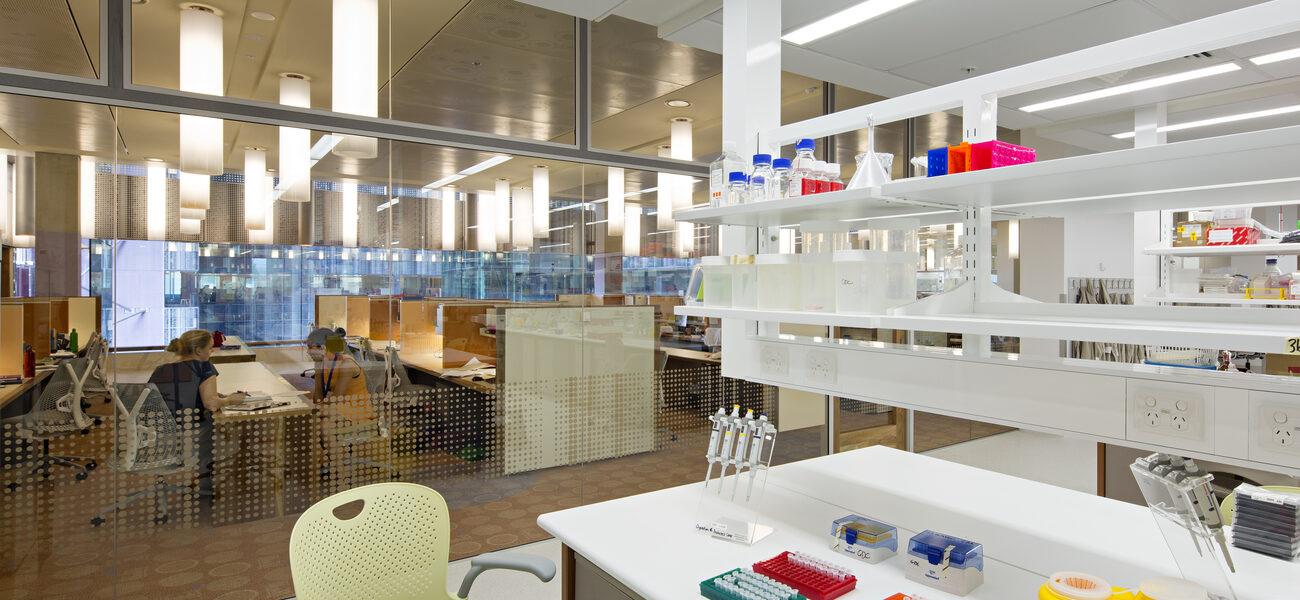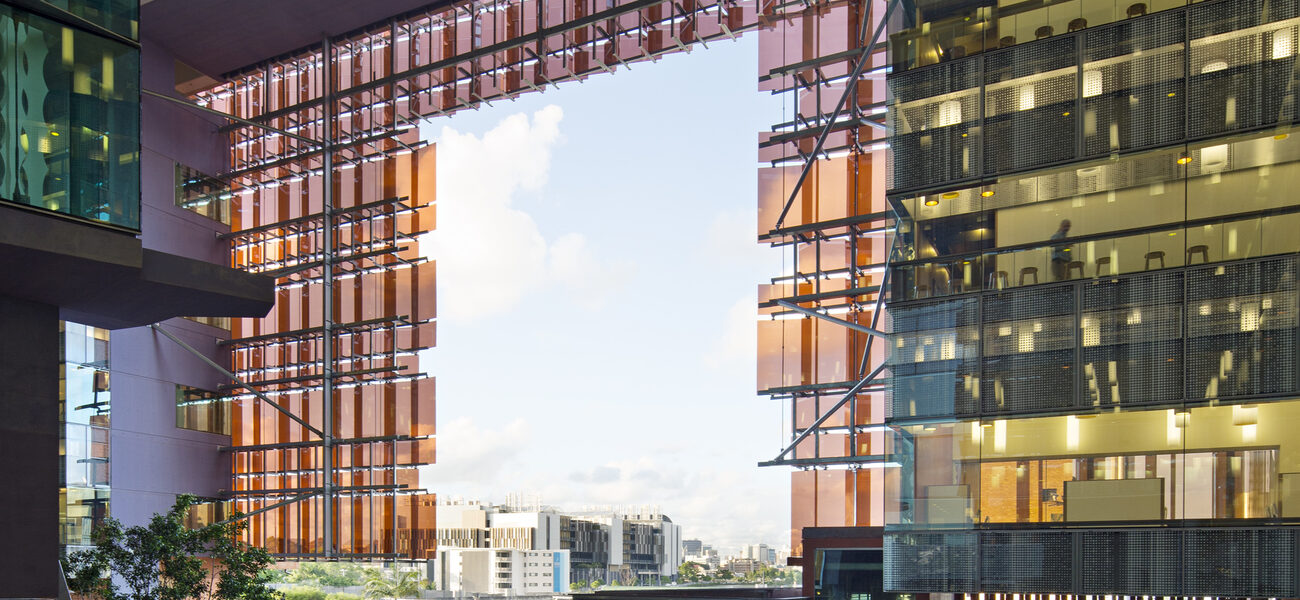Translational Research Institute (TRI) is a joint venture between The University of Queensland Diamantina Institute, Queensland University of Technology’s Institute of Health and Biomedical Innovation, Mater Research, and the Princess Alexandra Hospital Centres for Health Research.
TRI represents four leading medical research institutes with the joint aim of translating the findings of basic biomedical research into better patient outcomes. The Institute allows—for the first time in Australia—biopharmaceuticals and treatments to be discovered, produced, clinically tested, and manufactured in one location.
Bringing together a number of existing institutes engenders a sense of community within TRI and encourages integration and the sharing of ideas and knowledge across all staff.
The full TRI project includes three components: the $199 million Institute; Bio-Pharmaceuticals Australia (BPA), which is a $41.5 million pharmaceutical manufacturing scaleup facility located on the site; and a refurbishment within the adjacent hospital building for clinical trials associated with the research undertaken in TRI. An Australian first, TRI represents the turnkey “bench-to-bedside” mode of progressing scientific research right through to clinical application.
TRI itself is conceived as a series of interconnected places for research. From the intimate to the expansive, the building acknowledges the diverse communities that make up TRI and enables both the intensity of scientific research and a range of opportunities for collaboration. Typically strictly functional, the laboratory is, in this instance, elevated as a very human place for people to work at the highest level in the pursuit of scientific discovery. Careful fabrication of the building itself gives a finessed presence to the scientists’ pursuits.
The 420,000-sf, eight-story building is designed to house more than 650 researchers, with an additional 200 support staff.
TRI’s collaborative research expertise across common and serious diseases such as cancers, diabetes, inflammatory diseases, HIV, malaria, bone and joint diseases, obesity, and childhood illnesses will have a direct impact on improved public health and enhanced preventative treatments for the community.
| Organization | Project Role |
|---|---|
|
HGA
|
Architect
|
|
Donovan Hill Architects
|
Associate Architect
|
|
Davis Langdon
|
Cost Planner
|
|
Aurecon
|
Structural Engineer
|
|
Aurecon
|
Façade Engineer
|
|
Hawkins Jenkins Ross (HJR)
|
Mechanical Engineer
|
|
MultiTech Solutions (MTS)
|
Mechanical Engineer
|
|
Aurecon
|
Electrical Engineer
|
|
Wilson Landscape Architects
|
Landscape Architect
|
|
Donovan Hill Architects
|
Associate Landscape Architect
|
|
AECOM
|
Environmental
|
|
Exova Warrington Fire
|
Fire Engineer
|
|
Cundall
|
Vertical Transportation Engineer
|
|
ASK Consulting Engineers
|
Acoustical
|
|
Certis
|
Building Certifier
|
|
BESIX Watpac
|
Builder
|
|
Wilkore Pty Ltd
|
PC-3 Containment Area
|
|
Biotechnique Pty Ltd
|
Dagard Panels
|
|
Beckman
|
Centrifuges (floor, bench top, high-speed, and high-capacity)
|
|
Thermo Fisher Scientific
|
Cytocentrifuge
|
|
ESCO Lifesciences
|
Biological Safety Cabinets
|
|
ESCO Lifesciences
|
Laminar Flow Cabinet
|
|
ESCO Lifesciences
|
Cytotoxic Cabinets
|
|
Perkin Elmer
|
Cell Harvester
|
|
Nikon
|
Spinning Disc Confocal Microscope
|
|
Olympus
|
Confocal Microscope
|
|
Olympus
|
Epifluoresence Microscope
|
|
Olympus
|
Slide Scanner
|
|
NanoDrop
|
Microlitre Spectrophotometer
|
|
Tomy
|
Autoclave Lab
|

